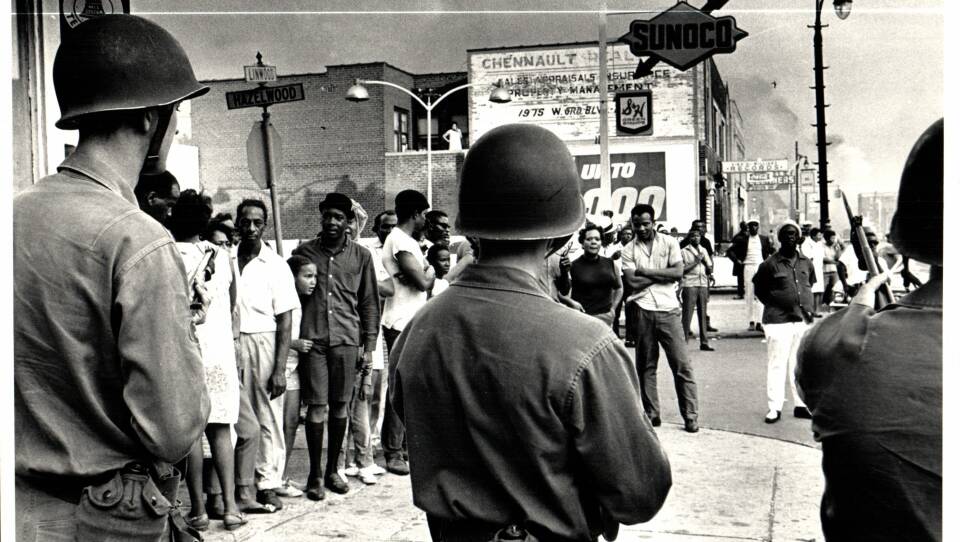Many Americans watched in horror as violence erupted in cities such as Detroit and Newark in the mid-to-late 1960s. President Lyndon B. Johnson, who had continued President John F. Kennedy’s push for civil rights, recognized the threat to his policy initiatives. He assembled the National Advisory Commission on Civil Disorders (also known as the Kerner Commission after its chair, Illinois Governor Otto Kerner, Jr.) to assess the situation and ways to prevent future rioting. The bipartisan group was composed of eleven politicians — nine White and two Black — all of whom had shown their support for Johnson’s previous Great Society initiatives.
AMERICAN EXPERIENCE’s The Riot Report presents the story of the commission and the first-of-its-kind 1968 government report that identified systemic racism as the cause of massive civil unrest in Black communities. But the results of the report were quickly buried by an administration afraid of potential political fallout. The film premieres on GBH 2 at 9pm on Tuesday, May 21, when it will also be available for streaming.
Writer/producer/director Michelle Ferrari said that following the events of May 2020, “I started to feel like [this] report had something really vital to say to the present that we didn’t actually hear at the time…or did, but ignored.” Ferrari may be best known for her work on AMERICAN EXPERIENCE’s Peabody Award–nominated film, The Vote, and on the Emmy-winning film, Seabiscuit.
New Yorker staff writer and Columbia University Journalism School dean Jelani Cobb is co-writer and co-producer. Cobb issued an excerpted version of the commission’s report, The Essential Kerner Commission Report, in 2021. He previously earned a Peabody Award for FRONTLINE’s Whose Vote Counts.
President Johnson hoped that the commission could help galvanize support for his antipoverty and civil rights work by proving that external forces were causing the unrest. Instead, the commission unanimously approved a report that pointed the finger not at outside agitators but at racist institutional systems. It was one of the first times that a government group specifically stated that its own systems were perpetuating discrimination and called for significant overhauls of law enforcement, the media, housing policy, and more. Johnson saw this as political dynamite and did all he could to bury the findings. He never formally accepted the report.
Ferrari and Cobb used archival film footage, interviews with commission staff members, and conversations with the sole surviving commissioner Senator Fred Harris to tell the story. “We wanted the film to be built around these voices,” said Ferrari, “and to be augmented by academics, historians, and writers who could help us unpack the social milieu at the time and the really fraught social dynamics.”
AMERICAN EXPERIENCE Executive Producer Cameo George said, “The Kerner Commission’s unanimous and blistering report put a spotlight on what was at the heart of structural racism and inequality in America. The findings of this dedicated and bipartisan group remain relevant in today’s America, and we hope our film adds some much-needed context to the ongoing national conversation.”
In the end, Ferrari was struck by the impossible position Johnson found himself in. “Johnson did a lot of good for the country and the fact that he essentially buried the report came as something of a shock. I hope we did the ‘rock and a hard place’ justice in the film, but it is one of those disappointments of history that I think we need to reckon with.”
Watch a preview of the film here.





